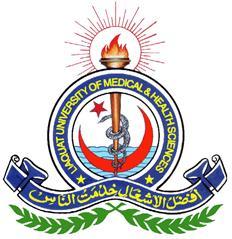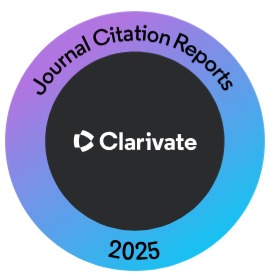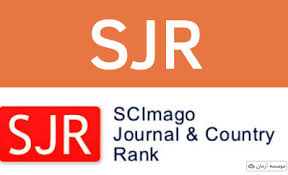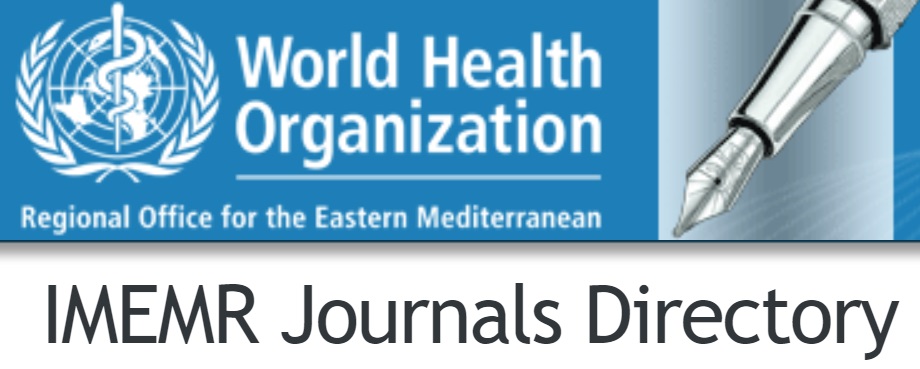Fear of Childbirth: Wellbeing and Partner Support in First-time Pregnant Women
Keywords:
Partner support, fear of childbirth, well-being, emotional support, First pregnancy, history of miscarriageAbstract
Objective: To assess the fear of childbirth, well-being and partner support in first-time pregnant women.
Methodology: This Cross-sectional study included 100 participants selected by purposive sampling. The sample was collected from two Hospitals in Lahore (Lady Wallington Hospital and Hameed Lateef Hospital) from June to October 2019. Wijma Delivery Expectancy Questionnaire, Wellbeing in Pregnant Women Questionnaire and Partner Support Questionnaire was used to collect data. Analysis was completed using SPSS version 23. Pearson correlation was used to assess the relationship between study variables. An Independent sample t-test was used to compare study variables, and simple linear regression analysis was calculated to predict fear of childbirth on their perception of partner support.
Results: 62% of first-time pregnant women showed fear of childbirth. Women who had more fear of childbirth had a low level of well-being (p<0.001). Partner support was significantly negatively correlated with fear of childbirth while positively correlated with well-being (r = .48, p < .001).
Conclusion: Women with first pregnancy suffer from fear of childbirth. However, partner support is essential to overcome this fear and help increase first-time pregnant women's well-being.
References
Szenverenyi P, Poka R, Hetey M, Torok J. Contents of childbirth-related fear among couples. J Psychosom Obstet Gynaecol. 1998; 19: 38-43. doi: 10.3109/01674829809044219.
Khwepeya M, Lee GT, Chen Su-Ru, Kuo Shu-Yu. Childbirth fear and related factors among pregnant and postpartum women in Malawi. BMC Pregnancy Childbirth. 2018; 18(1): 391-398. doi: 10.1186/s12884-018-2023-7.
Nieminen K, Stephansson O, Ryding EL. Women's fear of childbirth and preference for cesarean section--a cross-sectional study at various stages of pregnancy in Sweden. Acta Obstet Gynecol Scand. 2009;88(7):807-13. doi: 10.1080/00016340902998436.
Longworth HL, Kingdon CK. Fathers in birth room: what are they expecting an experiencing? A phenomenological study. Midwifery. 2011; 27(5): 588-94. doi: 10.1016/j.midw.2010.06.013. Epub 2010 Jul 29.
Nilsson C, Lundgren I. Women's lived experience of fear of childbirth. Midwifery. 2009; 25(2): 1-9. doi: 10.1016/j.midw.2007.01.017. Epub 2007 May 18.
Dencker A, Nilsson C, Begley C, Jangsten E, Mollberg M, Patel H, et al. Causes and outcomes in studies of fear of childbirth: A systematic review. Women Birth. 2019;32(2):99-111. doi: 10.1016/j.wombi.2018.07.004. Epub 2018 Aug 14.
Anwer Y, Abbasi F, Dar A, Hafeez A, Valdebenito S, Eisner M et al. Feasibility of a birth-cohort in Pakistan: evidence for better lives study. Pilot Feasibility Stud. 2022; 8(1): 29.
doi: 10.1186/s40814-022-00980-x.
Rini C, Schetter CD, Hobel CJ, Glynn LM, Sandman CA. Antecedents and consequences of partner support during pregnancy. Personal Relationships. 2006; 13: 207-214.
Stapleton LR, Schetter CD, Westling E, Rini C, Glynn LM, Hobel CJ, Sandman CA. Perceived partner support in pregnancy predicts lower maternal and infant distress. J Fam Psychol. 2012;26(3):453-63. doi: 10.1037/a0028332.
Wijma K, Wijma B, Zar M. Psychometric aspects of the W-DEQ; A new questionnaire for the measurement of fear of childbirth. J Psychosom Obstet Gynaecol. 1998; 19(2): 84-97. doi: 10.3109/ 01674829809048501.
Alderdice F, Mcneill J, Gargan P, Perra O. Preliminary evaluation of the Well-being in Pregnancy (WiP) Questionnaire. J Psychosom Obstet Gynaecol. 2017; 38(2): 133-142.
doi: 10.1080/0167482X.2017.1285898. Epub 2017 Feb 15.
Cheng ER, Rifas-Shiman SL, Perkins ME, Rich-Edwards JW, Gillman MW, Wright R et al. The Influence of Antenatal Partner Support on Pregnancy Outcomes. J Womens Health (Larchmt). 2016; 25(7): 672-9. doi: 10.1089/jwh.2015.5462.
Kingston D, Tough S. Prenatal and postnatal maternal mental health and school-age child development: a systematic review. Matern Child Health J. 2014; 18(7): 1728-41. doi: 10.1007/s10995-013-1418-3.
Erkayaa R, Karabulutlub O, Çal?ka KY. Defining Childbirth Fear and Anxiety Levels in Pregnant Women. Procedia- Soc Behav Sci. 2017; 237: 1045–1052.
Stapleton LR, Schetter CD, Westling E, Rini C, Gylnn LM, Hobel CJ et al. Perceived Partner Support in Pregnancy Predicts Lower Maternal and Infant Distress. J Fam Psychol. 2012; 26(3): 453-463.
Jonsdottir SS, Thome M, Steingrimsdottir T, Lydsdottir LB, Sigurdsson JF, Olafsdottir H et al. Partner relationship, social support and perinatal distress among pregnant Icelandic women. Women Birth. 2017; 30(1): e46-e55. doi: 10.1016/j.wombi.2016.08.005. Epub 2016 Sep 5.
Woods-Giscombe CL, Lobel M, Crandell JL. The Impact of Miscarriage and Parity on Patterns of Maternal Distress in Pregnancy. Res Nurs Health. 2010; 33(4): 316-328.
Kinsey CB, Baptiste-Roberts K, Zhu J, Kjerulff KH. Effect of previous miscarriage on the maternal birth experience in the First Baby Study. J Obstet Gynecol Neonatal Nurs. 2013; 42(4): 442-50. doi: 10.1111/1552-6909.12216. Epub 2013 Jun 17.
Cheng ER, Rifas-Shiman SL, Perkins ME, Rich-Edwards JW, Gillman MW, Wright R et al. The Influence of Antenatal Partner Support on Pregnancy Outcomes. J Women's Health(Larchmt). 2018; 25(7): 672–679. doi: 10.1089/jwh.2015.5462. Epub 2016 Feb 1.
Geissbuehler V, Eberhard J. Fear of childbirth during pregnancy: A study of more than 8000 pregnant women. J Psychosom Obstet Gynecol. 2002; 23(4): 229-35.
Ryff CD, Keyes CL. The structure of psychological wellbeing revisited. J Pers Soc Psychol. 1995; 69(4): 719–727. doi: 10.1037//0022-3514.69.4.719.
Downloads
Published
How to Cite
Issue
Section
License
Copyright (c) 2023 Journal of Liaquat University of Medical & Health Sciences

This work is licensed under a Creative Commons Attribution-NonCommercial-ShareAlike 4.0 International License.
Submission of a manuscript to the journal implies that all authors have read and agreed to the content of the undertaking form or the Terms and Conditions.
When an article is accepted for publication, the author(s) retain the copyright and are required to grant the publisher the right of first publication and other non-exclusive publishing rights to JLUMHS.
Articles published in the Journal of Liaquat University of Medical & health sciences are open access articles under a Creative Commons Attribution-Noncommercial - Share Alike 4.0 License. This license permits use, distribution and reproduction in any medium; provided the original work is properly cited and initial publication in this journal. This is in accordance with the BOAI definition of open access. In addition to that users are allowed to remix, tweak and build upon the work non-commercially as long as appropriate credit is given and the new creations are licensed under the identical terms. Or, in certain cases it can be stated that all articles and content there in are published under creative commons license unless stated otherwise.























